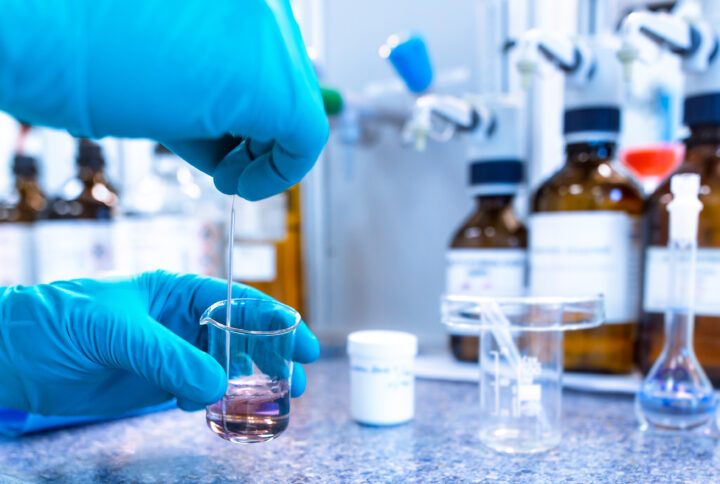High-purity chemicals are so important in the success of drug discovery and development. They offer efficiency and safety to drive innovation, and their role is crucial in advancing life sciences. By partnering with a trusted supplier like Techmate, you gain access to a wealth of knowledge, high-quality products, and materials with 100% purity to ensure that your chemical reaction or performance isn’t hindered.
The purity levels of chemicals can affect the accuracy of results. Let’s find out how:
Hinder Performance:
Ensuring Drug Efficiency – Active pharmaceutical ingredients (APIs) require exceptional purity to maintain consistent therapeutic effects. Even trace impurities can compromise a drug’s performance or cause adverse reactions. The synthesis of APIs depends on precise chemical reactions, achievable only with pure materials, ensuring compliance with stringent pharmacological standards.
Advancing Therapeutic Innovation – High-purity chemicals are fundamental in the development of treatments, including biologics and personalised medicines. Their quality directly impacts the safety and effectiveness of emerging therapies, driving medical advancements.
Supporting Accurate Research and Results:
Enhancing Drug Safety – The use of low-quality materials affects the production of high-purity compounds essential for pharmaceutical applications. This poses a significant challenge as stringent regulatory standards demand exceptional purity in development programs.
Affect Research Accuracy – Using low-purity chemicals in pharmaceutical research can compromise accuracy by introducing unwanted impurities that interfere with test results, leading to false readings, inconsistent data, and unreliable conclusions. Contaminants may react unpredictably, affecting the stability, potency, and effectiveness of drugs under study.
Quality Assurance:
Supplier Qualification – A lack of purity in chemicals used for pharmaceutical research can severely impact quality assurance by introducing uncontrolled variables, inconsistent data, and potential safety risks. Impurities may interfere with analytical tests, leading to false or misleading results, which can compromise the accuracy and reproducibility of experiments.
Pharmacopoeia Quality Standards – These are official guidelines that define the purity, strength, composition, and quality of pharmaceutical substances, excipients, and finished drug products. This ensures the safety of medicines by providing official, legally binding quality standards for drugs, their ingredients, and their manufacturing processes.
Testing Purity for Optimal Performance
Testing for purity in pharmaceuticals involves analytical techniques that detect impurities, contaminants and variations in chemical composition. The choice of purity testing method depends on the chemical nature of the substance, regulatory requirements, and potential impurities. For pharmaceuticals, compliance with GMP, GDP, ABPI and MHRA guidelines is essential to ensure drug safety and efficiency.
Using high-purity chemicals in pharmaceutical testing is non-negotiable for ensuring drug safety, efficiency, and regulatory compliance. It prevents contamination, enhances data accuracy, and supports the integrity of pharmaceutical research and production.
Contact us here for more information.

